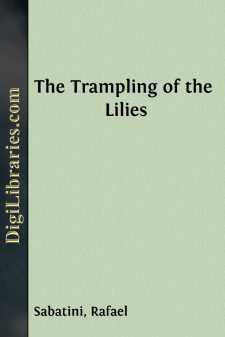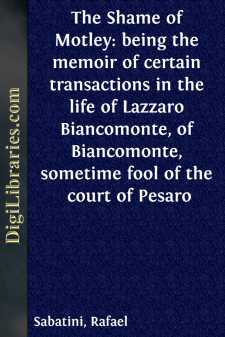Categories
- Antiques & Collectibles 13
- Architecture 36
- Art 48
- Bibles 22
- Biography & Autobiography 813
- Body, Mind & Spirit 142
- Business & Economics 28
- Children's Books 17
- Children's Fiction 14
- Computers 4
- Cooking 94
- Crafts & Hobbies 4
- Drama 346
- Education 46
- Family & Relationships 57
- Fiction 11829
- Games 19
- Gardening 17
- Health & Fitness 34
- History 1377
- House & Home 1
- Humor 147
- Juvenile Fiction 1873
- Juvenile Nonfiction 202
- Language Arts & Disciplines 88
- Law 16
- Literary Collections 686
- Literary Criticism 179
- Mathematics 13
- Medical 41
- Music 40
- Nature 179
- Non-Classifiable 1768
- Performing Arts 7
- Periodicals 1453
- Philosophy 64
- Photography 2
- Poetry 896
- Political Science 203
- Psychology 42
- Reference 154
- Religion 513
- Science 126
- Self-Help 84
- Social Science 81
- Sports & Recreation 34
- Study Aids 3
- Technology & Engineering 59
- Transportation 23
- Travel 463
- True Crime 29
The Trampling of the Lilies
by: Rafael Sabatini
Categories:
Description:
Excerpt
CHAPTER I. MONSIEUR THE SECRETARY
It was spring at Bellecour—the spring of 1789, a short three months before the fall of the Bastille came to give the nobles pause, and make them realise that these new philosophies, which so long they have derided, were by no means the idle vapours they had deemed them.
By the brook, plashing its glittering course through the park of Bellecour, wandered La Boulaye, his long, lean, figure clad with a sombreness that was out of harmony in that sunlit, vernal landscape. But the sad-hued coat belied that morning a heart that sang within his breast as joyously as any linnet of the woods through which he strayed. That he was garbed in black was but the outward indication of his clerkly office, for he was secretary to the most noble the Marquis de Fresnoy de Bellecour, and so clothed in the livery of the ink by which he lived. His face was pale and lean and thoughtful, but within his great, intelligent eyes there shone a light of new-born happiness. Under his arm he carried a volume of the new philosophies which Rousseau had lately given to the world, and which was contributing so vastly to the mighty change that was impending. But within his soul there dwelt in that hour no such musty subject as the metaphysical dreams of old Rousseau. His mood inclined little to the "Discourses upon the Origin of Inequality" which his elbow hugged to his side. Rather was it a mood of song and joy and things of light, and his mind was running on a string of rhymes which mentally he offered up to his divinity. A high-born lady was she, daughter to his lordly employer, the most noble Marquis of Bellecour. And he a secretary, a clerk! Aye, but a clerk with a great soul, a secretary with a great belief in the things to come, which in that musty tome beneath his arm were dimly prophesied.
And as he roamed beside the brook, his feet treading the elastic, velvety turf, and crushing heedlessly late primrose and stray violet, his blood quickened by the soft spring breeze, fragrant with hawthorn and the smell of the moist brown earth, La Boulaye's happiness gathered strength from the joy that on that day of spring seemed to invest all Nature. An old-world song stole from his firm lips-at first timidly, like a thing abashed in new surroundings, then in bolder tones that echoed faintly through the trees
"Si le roi m'avait donne
Paris, sa grande ville,
Et qui'il me fallut quitter
L'amour de ma mie,
Je dirais au roi Louis
Reprenez votre Paris.
J'aime mieux ma mie, O gai!
J'aime mieux ma mie!"
How mercurial a thing is a lover's heart! Here was one whose habits were of solemnity and gloomy thought turned, so joyous that he could sing aloud, alone in the midst of sunny Nature, for no better reason than that Suzanne de Bellecour had yesternight smiled as—for some two minutes by the clock—she had stood speaking with him.
"Presumptuous that I am," said he to the rivulet, to contradict himself the next moment. "But no; the times are changing. Soon we shall be equals all, as the good God made us, and—"
He paused, and smiled pensively....












